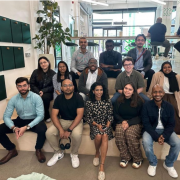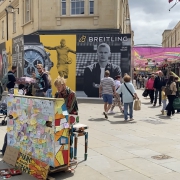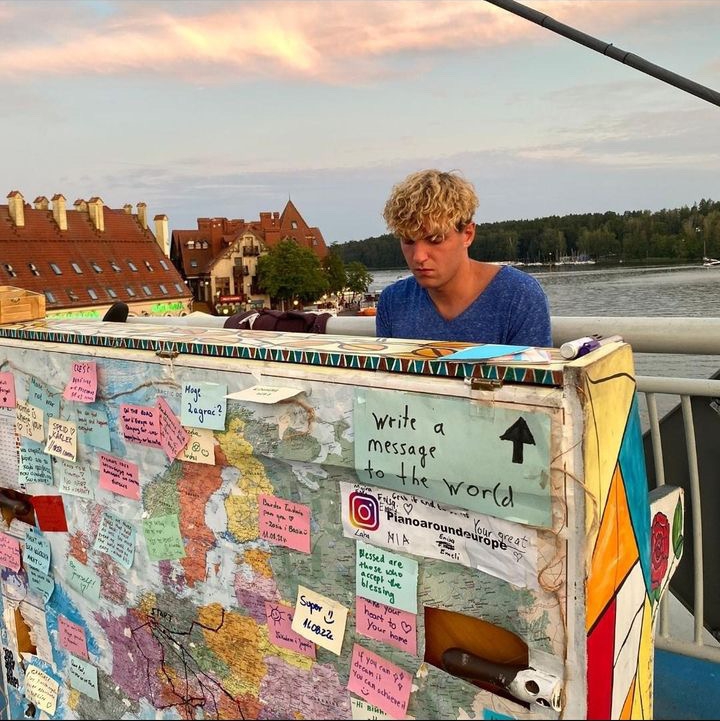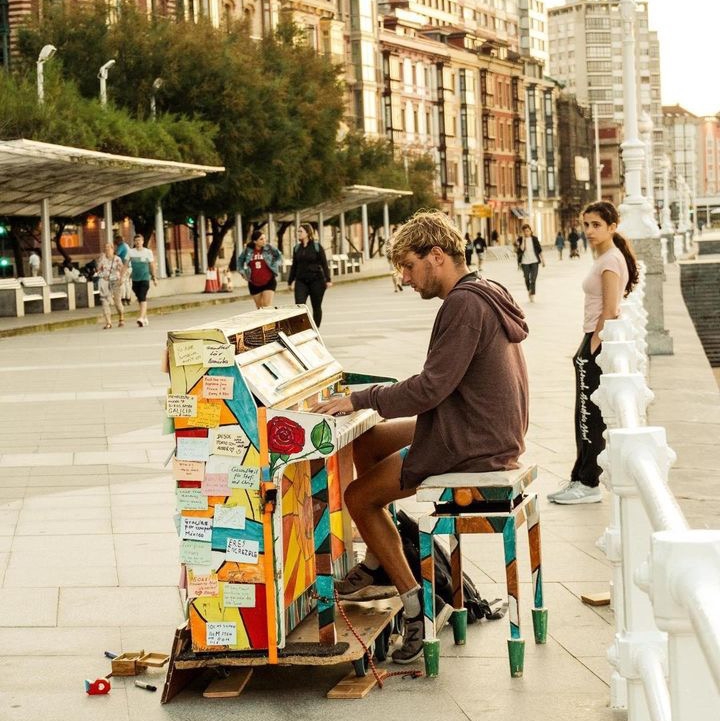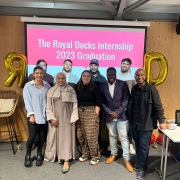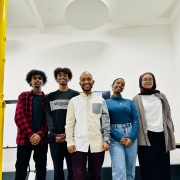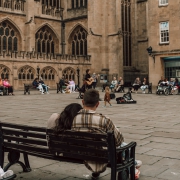James Broadley Fosters Creativity and Collaboration Through Mafia Weekend CIC Film Course
James Broadley is a co-founder of Mafia Weekend CIC. While this may sound like some convention for London’s next best criminals, it is quite far from it. Mafia Weekend, also known as, Make a Film in a Weekend, is a 48-hour program based in Owslebury, Winchester that brings community members from different backgrounds together into a collaborative environment to create film.
The Mafia Weekend team consists of 3 people. Broadley, the artistic director who deals with sales, outreach and the general business management of the company. Co-founder Dan Robb, who is also an in-house filmmaker for the National Health Service, uses his expertise to mentor the participants. Kezia Joseph, a professional actress, teaches acting, creative writing and other aspects of the course.
When asked about the inspiration for this project, Broadley gave insight into his background in drama. 27-year-old Broadley graduated from the Royal Central School of Film and Drama with a degree in acting with collaborative and devised theatre in 2018.
“I found it’s such a such an extraordinary energy like live performance like being on stage and having someone witness you transform into another character,” said Broadley
He described being blown away by his experience at the school learning to not only be an actor but also a creative and a producer.
“And really offering actors the idea that they’re artists that can, if they want to, can have an influence in the way community and society see themselves,” said Broadley.
After graduating, though, Broadley moved away from the creative space working as a fundraiser for Amnesty International. But he eventually immersed himself in the filmmaking field again when joining the film committee at Bell House, a volunteer-led charity providing opportunities for aspiring creatives. This is where he pitched the idea of a 48-hour intensive filmmaking course. Broadley collaborated with Robb in its creation.
“And people turned up for the event. And we really enjoyed the experience of working together and we loved the feeling of people coming together to create. It was a real high energy space. So it just left a really strong impression on both me and Dan and the participants,” said Broadley.
In order to complete the ambitious task of making a film in just two days, the program runs from around 10 in the morning to six in the afternoon. 12 participants are allowed per course that consists of five parts.
“Part one is about bringing a group of strangers together and generating an experience, a kind of an atmosphere where people feel safe, and people feel comfortable,” said Broadley.
This consists of team games and having each participant write about their own creative journeys.
“A lot of time is spent really letting people come into their own body. Because it’s really important when things get frenetic on day two and quite high energy. Just people can come back into their own body and feel safe.”
The second part, which occurs also on the first day, is committed to story generation and teaching movie fundamentals. Because no story is pre-written before the course, the participants must collaborate on what movie they want to create. Broadley then said that past movies have been ghost, coming-of-age films and most recently climate fiction.
In order to most effectively decide on the film, Broadley splits the team into smaller groups to discuss their ideas and interests before opening up to the large group.
“Over the period of around three hours we will have generated like a kind of seven scene film,” said Broadley.
Broadley also emphasised that the purpose of day one is to provide a foundation in storytelling so that on day two, he can give creative freedom to the participants.
“It’s not me writing it for them and saying, ‘Right, now go make the film.’ It’s like, ‘No it’s your movie, you get the choice of how it’s made.’”
After deciding on a storyline, the second day is committed to film creation. Broadley insists that everyone get in front of the camera at some point in filming as well as the opportunity for each participant to direct their own scene. “Whether you’re [director of photography], light, sound, all of these roles get switched around.”
Once the film has been shot and the 48-hour time period is over, Broadley said that a time to meet remotely is scheduled for Robb to provide an editing workshop. Robb later edits the entire movie with the shot film, and the five to 11 minute short is ready to be screened in about two to three months.
Broadley described the company’s target audience as emerging artists between 16 to 25 who may be looking for direction after completing school, but he welcomes ages up to over 60 years. “We noticed that the films that were getting created when people from mixed backgrounds or demographics were just more interesting,” Broadley said. “Whether that be as a professional or more as like a hobby or an outlet, everyone kind of comes along.”
Another demographic that Mafia Weekend provides outreach to is refugees and people seeking asylum in the U.K. Broadley said that he hopes to provide a creative outlet for refugees to express their experiences.
Moving away from the charity organisation it began as, Mafia Weekend registered as a company last year, evolving to more of a production company. While still an educational program, the company takes commissions from various clients such as local governments, charities, and corporate organisations.
When asked about the future of Mafia Weekend, Broadley said that he hopes for the course to become a regular experience and to network with local filmmakers in the U.K. and abroad to conduct similar programs.
“How can we kind of transport that framework and take it to other communities across the UK and potentially, you know, potentially internationally as well?” said Broadley.
Broadley highlighted the goal of the course being to show people that things are possible when there is collaboration and motivation. Mafia Weekend CIC is a recurring course so if you have any interest in filmmaking in any capacity, be on the lookout for their next course.
By Jack Underhill, You Press Intern





